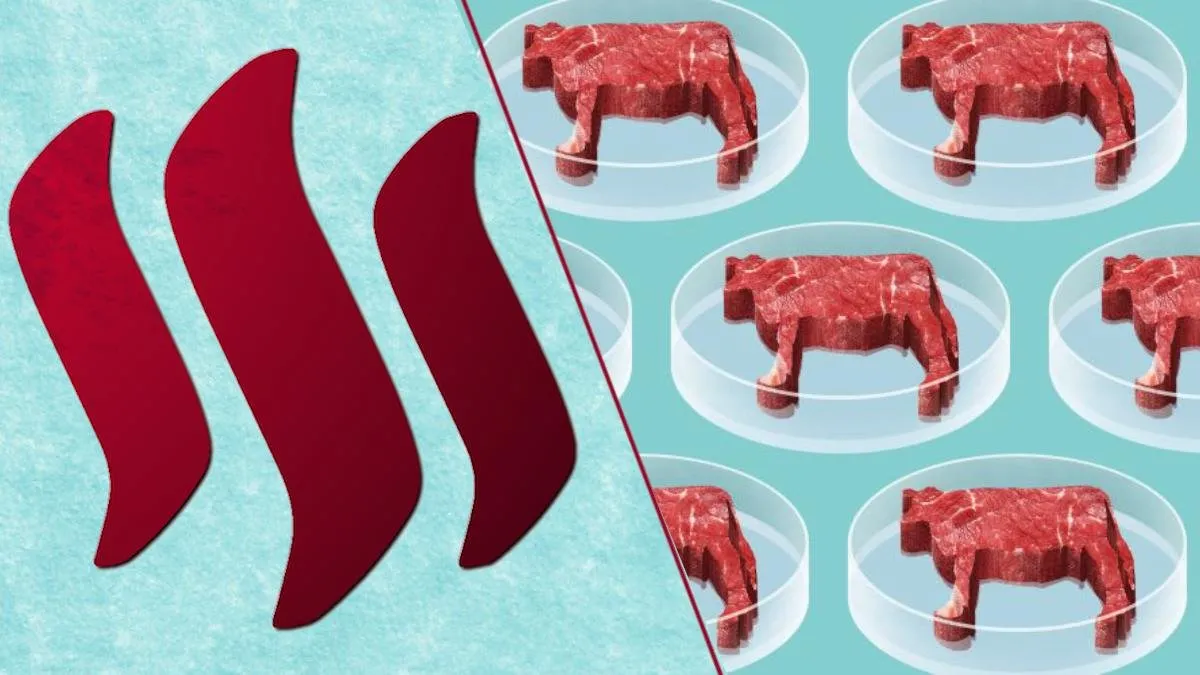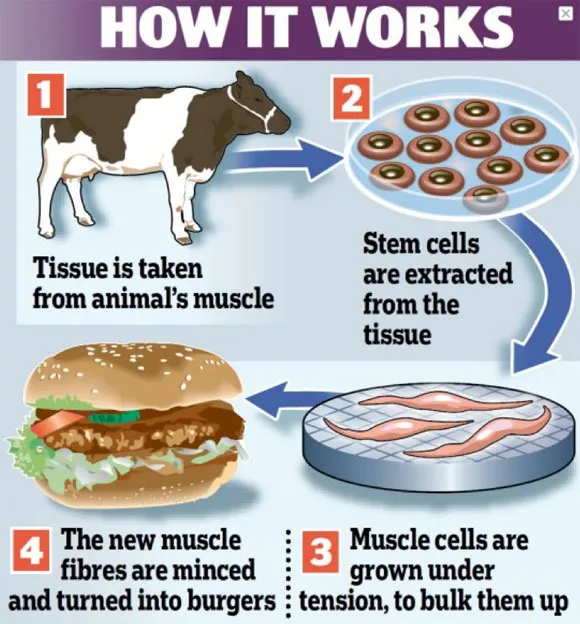
The world population is growing at a rapid pace - and our hunger for meat is never satisfied as well.
Almost HALF of the total harvest of the world is being fed to livestock!
Meat production requires a very high energetic footprint - it takes 75 times more energy and water to produce meat than corn. Additionally, the area of vegetation needed to produce the necessary food for the cattle and livestock in Europe is 7 times bigger than the area of the EU itself.
Within the next few decades, we can't continue with this lifestyle - it will have extremely destructive consequences not only on humanity, but also animals and energetic resources.
That's where Lab-Grown meat comes in - it offers a solution to all of these problems!
The meat is real meat - just without the need of keeping and slaughtering live animals.
Lab-Grown meat is sustainably farmed from animal stem cells, and is supposed to taste like any other "regular" meat.
Memphis Meats
Amongst others, the company Memphis Meats creates this type of "clean meat" (also called synthetic meat, cultured meat or in vitro meat), a new approach to sustainable meat and potentially even the future of food.
They have currently managed to create lab-grown meatballs, chicken and duck.
Memphis meats is even supported by famous Investors and Billionaires like Microsoft founder Bill Gates and Virgin Group founder Richard Branson, who have just donated a staggering amount of $17 million to the startup.

There are significant problems with the way meat is currently produced – environmental degradation, the slaughtering of billions of animals annually and health issues from bacterial contamination.
By growing meat from animal cells we believe we can significantly improve upon all of these issues. We expect our products to require up to 90% less environmental inputs, to have a much lower risk of bacterial contamination, and to entirely detach animal slaughter from the meat production process.
We want to give people the ability to continue to eat the meat they’ve always loved, without the negative impacts on the planet, the body and the animals.
How does this lab-grown meat work?
First, researchers take tiny meat cells from an animal, for example through a sample or with a painless biopsy.
Then they identify cells which are capable of self-renewal, which means that they don't need to return to animals for subsequent samples once the initial stem cells are obtained.
They know exactly which types of cells are needed to achieve the specific flavour, aroma and textures they're looking for.
Next, these cells are enriched with nutrients which help the cells grow and turn them into "real", edible meat.
And finally, after around 4-6 weeks of lab-growing, the meat can be harvested.
“Our goal is to entirely remove the animal from the meat production process.”, says CEO Uma Valeti.

Our meat is delicious! It’s real meat, and life-long meat-eaters immediately recognize it
and enjoy it. The way we make meat is an improvement in a few important ways. First, we expect our process
to require less than a tenth of the land and water and less than half of the energy that it takes to produce
conventional meat. Second, our goal is to produce meat without using animals to address some of the animal
welfare issues of current meat production. Third, we believe our meat is safer. We’ve all read about food
borne illnesses coming from conventional meat, and our process reduces that risk dramatically.
Other examples of lab-grown animal products
Memphis Meats certainly isn't the only company looking into the potential of creating lab-grown animal products.
Startups like FutureMeat and SuperMeat are all aiming to create an alternative for the conventional way we produce meat.
And this field of research isn't even limited to meat only - Finless Foods for example is a startup that aims to create lab-grown fish from stem cells.
The cells are also growing in a "brewery-like environment”, and have already succeeded in accumulating a stable fish cell culture and getting the cells to divide in the bioreactor.

Clean meat offers the delicious and nutritious treats - all while being produced by scientists only.
It offers a solution to the growing problem of feeding the world population, and fighting animal slaughtering. This way, it might even be a possible alternative for vegetarians and vegans whose priority are animals.
What's your opinion about this lab-grown, "clean" meat?
Do you think it offers a real alternative for the future of meat, and maybe even the future of food in general ?

© Sirwinchester


